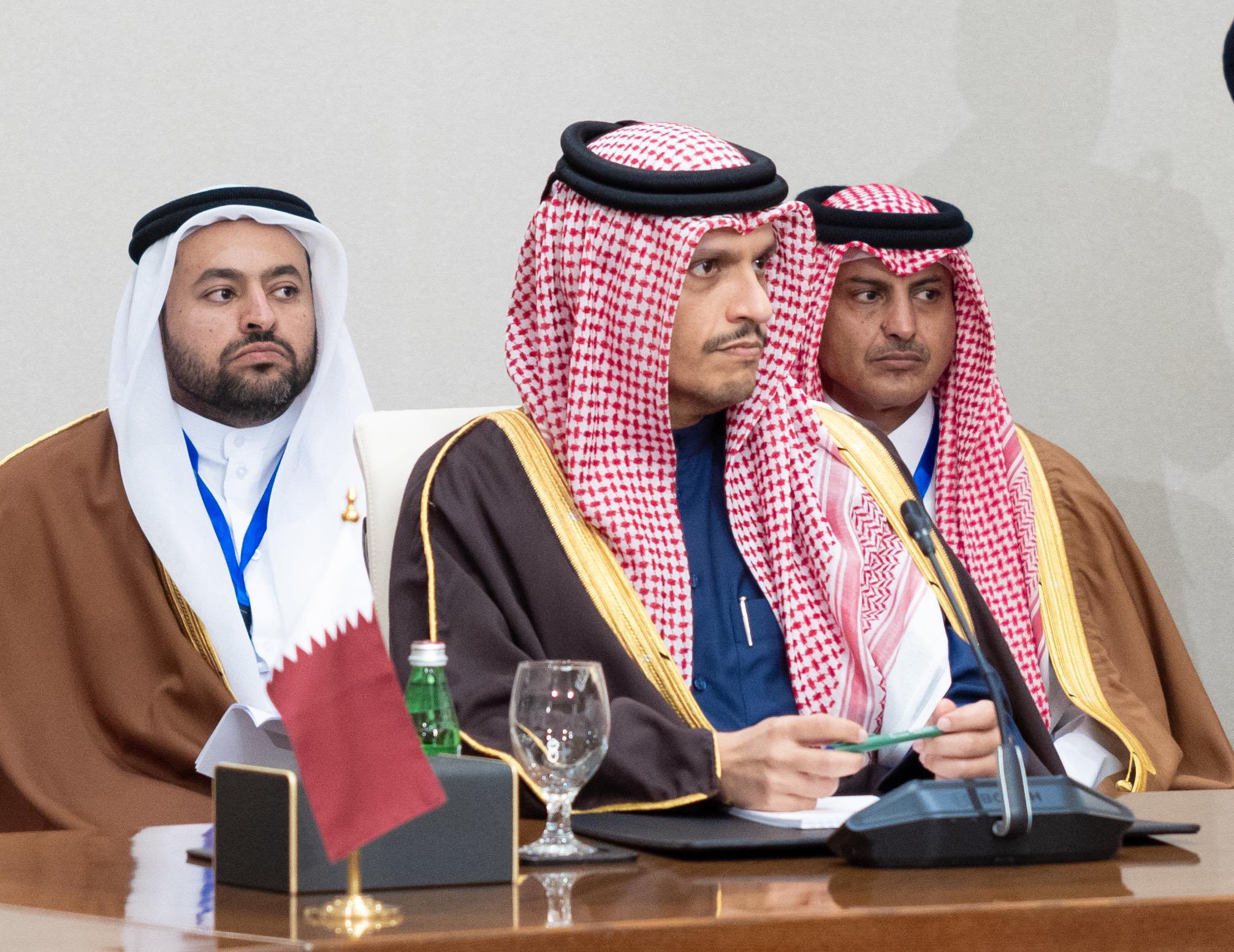The Syrian regime was isolated for more than a decade after its brutal crackdown on peaceful pro-democracy protests in 2011, plunging the country into a deadly war and creating the world’s largest refugee crisis.
Qatar attended a high-level meeting between top officials from the Middle East, Türkiye and the West in the Jordanian city of Aqaba on Saturday over Syria’s political transition following the fall of the long-term rule of the Bashar Al-Assad regime earlier this month.
The meeting saw the attendance of Qatar’s Prime Minister and Minister of Foreign Affairs Sheikh Mohammed bin Abdulrahman Al Thani.
Other regional countries in attendance included Saudi Arabia, the United Arab Emirates, Bahrain, Iraq, Lebanon and Egypt. The Arab League’s Secretary-General Ahmed Aboul Gheit also joined the Middle Eastern ministers.
Also in attendance were officials from the United States, Türkiye, Germany, the United Kingdom, the European Commission as well as the United Nations Special envoy to Syria, Geir Pedersen.
The officials also met Jordan’s King Abdullah II on the sidelines of the meeting.
The meeting in Aqaba centered on “ways to support a comprehensive political process led by the Syrians to achieve a transitional process”, according to Qatar’s foreign ministry.
The officials also affirmed their support for a transition that would ensure the rebuilding of Syria’s state institutions and the preservation of its unity and territorial integrity.
Speaking in a press conference following the Aqaba talks, U.S. Secretary of State Antony Blinken said the meeting’s agreement sent “a unified message to the new interim authority and parties in Syria on the principles crucial to securing much needed support and recognition”.
He added that Washington has been in “direct contact” with opposition group Hayat Tahrir Al-Sham (HTS) and “other parties” in order to help locate U.S. journalist Austin Tice, who was abducted while reporting in Daraya, a Damascus suburb, in 2012.
“We’ve been in contact with the importance of helping find Austin Tice and bringing him home. And we’ve also shared the principles that I just laid out for our ongoing support, principles, again, that have now been adopted by countries throughout the region and well beyond,” he said.
The meeting in Jordan came nearly a week after the fall of the Assad regime following a surprise offensive led by HTS, eventually entering Damascus.
Assad and his family had fled to Moscow, one of his main allies and backers, the moment the group reached the capital city and he has not publicly appeared since his ouster.
The Syrian regime was isolated for more than a decade after its brutal crackdown on peaceful pro-democracy protests in 2011, plunging the country into a deadly war and creating the world’s largest refugee crisis.
A wave of normalisation in 2023 saw the return of the Assad regime to the Arab League after Syria’s suspension from the bloc in the wake of the events.
Qatar had closed its embassy in Syria in 2011 in response to Assad’s attacks on Syrians and was the first to establish an embassy for the opposition in its capital, Doha.
Meanwhile, a Qatari diplomat told AFP on Friday that an official delegation from the Gulf state is scheduled to visit Syria on Sunday for meetings with officials in the transitional government.
“The first Qatari delegation visit to Syria is expected to happen Sunday where they will take the necessary steps to reopen the embassy and discuss enhancing aid delivery,” the diplomat told AFP, speaking on condition of anonymity.
Qatar has also reportedly a channel of communication with HTS, led by Ahmed al-Sharaa, whereas the Gulf state’s foreign ministry spokesperson, Majed Al-Ansari, confirmed that his country will re-open its embassy in Syria “soon”.
Türkiye’s embassy also resumed its operations in Syria on Saturday for the first time in 12 years.






